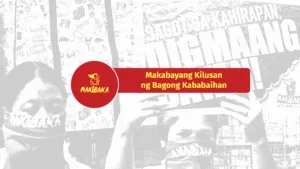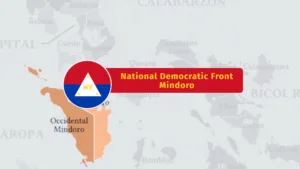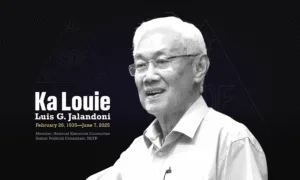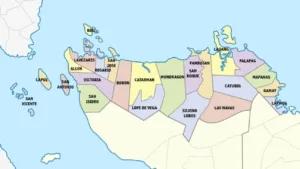LUIS G. JALANDONI
Chairperson, NDFP Negotiating Panel
Gloria Macapagal-Arroyo’s ballyhooed “roadshow” or public relations tour of Europe has become a tour of shame. She leaves Europe in disgrace.
The President of Finland, Tarja Halonen, raised the issue of political killings during Arroyo’s official call on her. Prior to that, the Foreign Minister of Finland Erkki Tuomioja, in a speech before the Asia-Europe Peoples’ Forum in Helsinki, singled out the situation in the Philippines, “We also want to see an end to the political killings which form a harsh reality of that country.”
LUIS G. JALANDONI
Chairperson, NDFP Negotiating Panel
Gloria Macapagal-Arroyo’s ballyhooed “roadshow” or public relations tour of Europe has become a tour of shame. She leaves Europe in disgrace.
The President of Finland, Tarja Halonen, raised the issue of political killings during Arroyo’s official call on her. Prior to that, the Foreign Minister of Finland Erkki Tuomioja, in a speech before the Asia-Europe Peoples’ Forum in Helsinki, singled out the situation in the Philippines, “We also want to see an end to the political killings which form a harsh reality of that country.”
European Commission President Jose Manuel Barroso reminded her that the political killings in the Philippines “were a matter of concern” to the European Commission. While they were meeting, some 100 Belgian, Dutch and Filipino protesters gathered at the Schuman Plaza fronting the European Commission building in Brussels. They denounced Arroyo, the Armed Forces of the Philippines and the Philippine National Police as “the masterminds” behind the political killings. Even before her departure for Europe, the EU ambassador to the Philippines, Jan de Kok, had criticized the Arroyo regime for the spate of extrajudicial killings, naming in particular the murders of political leaders from the Cordillera region.
Prior to her European tour, the extrajudicial killings and the enforced disappearances had been the subject of condemnation by the World Council of Churches, Amnesty International, the Asian Human Rights Council, the Fact-Finding Mission of Dutch and Belgian judges and lawyers, the United Church of Canada, the Uniting Church of Australia, and many other organizations.
Arroyo’s Melo Commission and Task Force Usig have failed to dampen criticisms against her regime. These are not credible as independent fact-finding bodies, since they are clearly taking their cues from Arroyo. Her invitation to private individuals or impartial bodies from abroad falls flat on its face. It is another vain attempt to deceive. Requests of United Nations Special Rapporteurs to go to the Philippines to conduct inquiries are left unanswered. She ignores the call of Amnesty International and other organizations for independent bodies to conduct investigations of the extrajudicial killings, enforced disappearances and other human rights violations.
The root of the problem in the extrajudicial killings is that Gloria Arroyo, as commander-in-chief of her security forces, has directed these killings to be carried out through the Cabinet Oversight Committee on Internal Security and the Presidential Anti-Terrorism Task Force headed by General Eduardo Ermita. As commander-in-chief she can very well order the military, police and death squads to stop the bloody rampage. But she does not.












